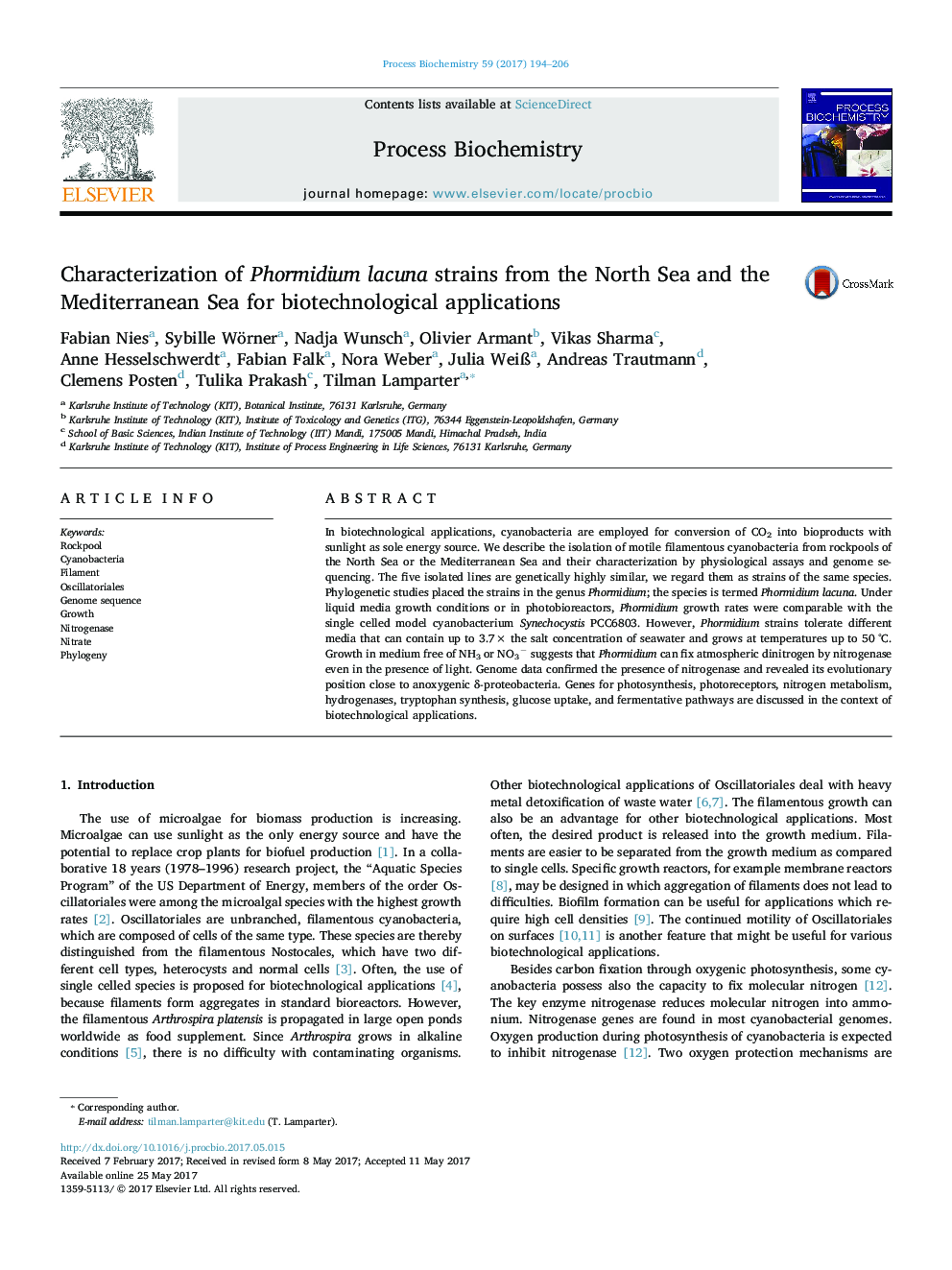| Article ID | Journal | Published Year | Pages | File Type |
|---|---|---|---|---|
| 6452948 | Process Biochemistry | 2017 | 13 Pages |
â¢Five filamentous cyanobacteria were isolated from rockpools of the Mediterranean and the North Sea.â¢All strains belong to a novel species termed Phormidium lacuna.â¢The genome of Phormidium lacuna HE10JO shows major accordance with other cyanobacteria.â¢Evidence for oxygen insensitive nitrogenase activity.â¢Growth on agar and in liquid media under various salt and temperature conditions.
In biotechnological applications, cyanobacteria are employed for conversion of CO2 into bioproducts with sunlight as sole energy source. We describe the isolation of motile filamentous cyanobacteria from rockpools of the North Sea or the Mediterranean Sea and their characterization by physiological assays and genome sequencing. The five isolated lines are genetically highly similar, we regard them as strains of the same species. Phylogenetic studies placed the strains in the genus Phormidium; the species is termed Phormidium lacuna. Under liquid media growth conditions or in photobioreactors, Phormidium growth rates were comparable with the single celled model cyanobacterium Synechocystis PCC6803. However, Phormidium strains tolerate different media that can contain up to 3.7à the salt concentration of seawater and grows at temperatures up to 50 °C. Growth in medium free of NH3 or NO3â suggests that Phormidium can fix atmospheric dinitrogen by nitrogenase even in the presence of light. Genome data confirmed the presence of nitrogenase and revealed its evolutionary position close to anoxygenic δ-proteobacteria. Genes for photosynthesis, photoreceptors, nitrogen metabolism, hydrogenases, tryptophan synthesis, glucose uptake, and fermentative pathways are discussed in the context of biotechnological applications.
Graphical abstractDownload high-res image (223KB)Download full-size imageFilaments of the newly characterized cyanobacterium, Phormidium lacuna, and a section of the 16S rRNA phylogenetic tree. We propose that these cyanobacteria are well suited for biotechnological applications such as ethanol production.
